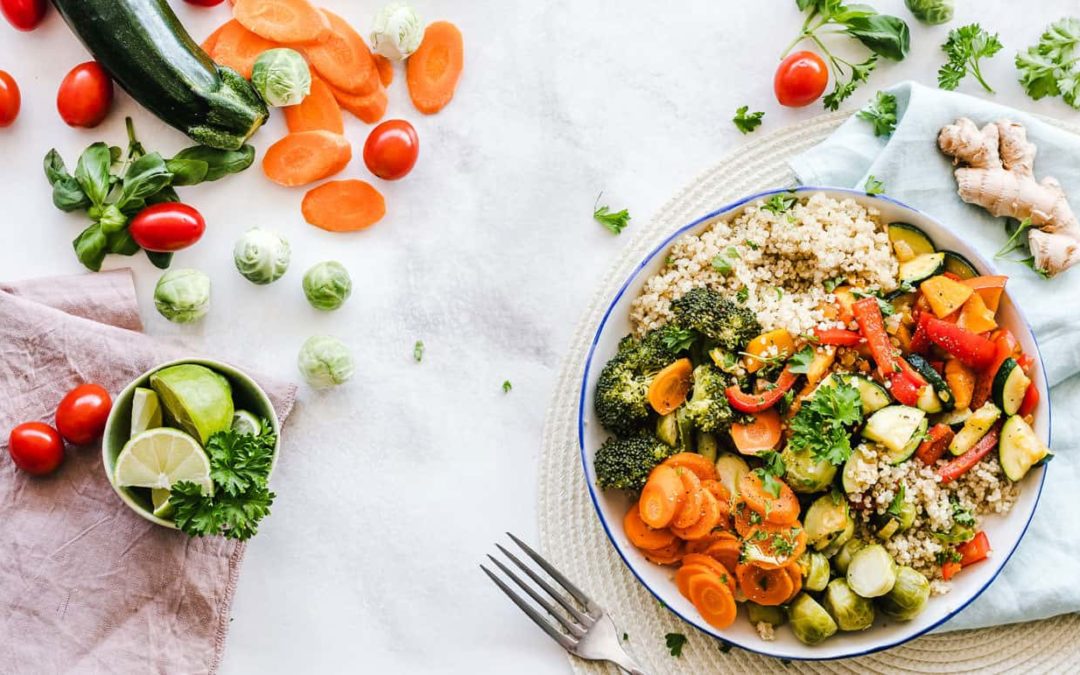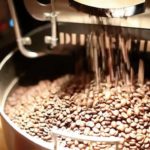Healthy Tips
Today Julie Zeitlhuber brings us the best healthy tips to have a natural and more conscience life. Julia is a good friend of mine, and for a while she was my partner in crime, because we used to worked together. Julie is a scientist and food lover. She graduated with a Master in Nutritional Science from the University of Vienna, and now she lived and worked in Melbourne, she worked at the WHO in Geneva and currently she is living in Vancouver. Different countries and their food cultures inspire her.
What does healthy mean to you?
For me, being healthy means being physically, emotionally and mentally fit and strong. Strong not in the sense of how much weight you can lift, but how resistant you are against environmental stress we get bombarded with every day. Being healthy doesn’t mean you are size 0 and your cholesterol levels are perfect – it is more a feeling of happiness and confidence you feel when you look at yourself in the mirror. Balanced diets and exercise are big contributors in achieving that healthiness.
How does stress affect our health?
Being stressed is probably one of the biggest risks for our health. Most people nowadays are constantly stressed. At work, around their family, when working out…there is never time to relax and come down and just have a few minutes to ourselves. Long term, this state will affect your health and wellbeing.
HOW? Let me go back in time…when the big sabretooth tiger tried to attack you, the “fight or flight” response was triggered in our nervous system. Back then it was a question of dying or surviving. Nowadays, it still is our fundament physiology response to modern day stress. This defence mechanism activates the sympathetic nervous system and adrenaline, noradrenaline and cortisol are released into our bloodstream. These hormones trigger a bunch of changes in our body such as increased breathing, blood streams away from our digestive tract towards muscles and limbs (ready to escape or fight). Further, the immune system is affected and infections, chronic fatigue, depression, allergies are more likely to be developed. Today’s sabretooth tiger might be a deadline, traffic, arguments with your boss etc.
Consequently, being stressed increases cortisol levels, which affect our digestion and immune system. Food sensitivities or intolerances may therefore not be due to the food itself but due to the impaired function of digestion system. Ask yourself: are you also gluten or lactose intolerant when you are on holiday? Hmm…
Headaches, tensions in muscles, upset stomachs, sleeping difficulties…all those things can be due to the “fight or flight” response we are constantly putting ourselves into when under stress.
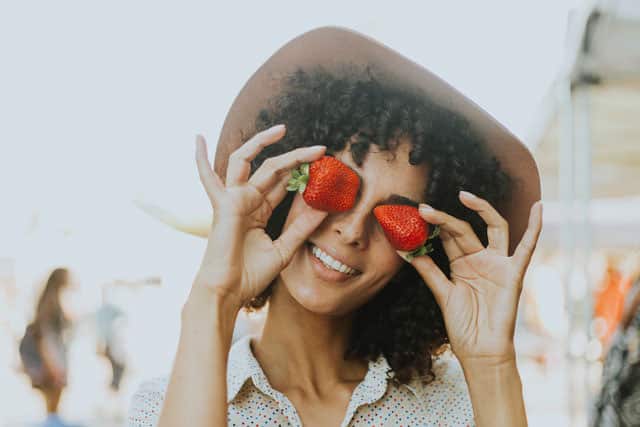
What is the best way to control and balance stress in our lives?
- Exercise
- put your body into physical stress in order to release mental stress (go for a run, dance classes, lift weights, mountain biking, ride your bike to work instead of taking the bus…whatever works for you) it will also improve your sleep and self-image
- Breathe
- Take a few minutes per day – breath in through your nose, exhale through your mouth contracting your abdominal muscles
- Meditate and practice mindfulness
- Yoga
- Be social
- Support from friends and family
- Laugh
- Relaxes your muscles, brings more oxygen into system
- Improves mood by releasing endorphins
- Reduce caffeine intake
- Too much caffeine can increase stress and anxiety
- Get enough sleep
- Learn to say “No”
- Decrease workload
- Chew gum
- Aromatherapy
- Light a scented candle (calming scents like vanilla, rose, bergamot, sandalwood…)
- Listen to music
- Interact with pets
- Sex

What is a no-no in a healthy life style?
Letting yourself go. Comfort eating is not a solution to problems. Don’t fall into a daily grind, instead better switch things up (food, exercise, activities…) Stop smoking! Limit your alcohol intake!
What are the 3 healthy tips to achieve a healthy life?
Exercise. Nutrition. Love
Eat well: NOURISH YOUR BODY! You are what you eat. Nutrient dense foods will give you energy and benefit your health and appearance.
Exercise: walk, walk, walk, find a hobby, hike, get out into nature, encourage friends to workout with you, running groups
Love: surround yourself with positive minded people, family, friends, loved ones
What do you recommend to your clients to start a new healthy way of life?
Give yourself time. You didn’t establish your old habits in one day. One step at a time. The most important thing is consistency. If you change your complete diet and exercise routing from one day to the other, you will not be able to keep it long term. My recommendations are
- Clean your fridge and pantry (get rid of everything that could be a temptation)
- Change step by steps e.g. Whole grains instead of white flour, lean meat instead of fatty meat, water and unsweetened tea instead of sugary drinks, dark chocolate instead of milk chocolate.
- Write down in your calendar or journal when and what you will exercise. See it as an appointment, rather than a hobby. This way it is harder to find excuses or schedule something else at the same time.
- Walk or ride your bike to work, the supermarket, meetings whenever possible.
- Don’t ever go on a crash diet! It is not sustainable long-term and yoyo effects are programmed.
- Listen to your body. Are you really hungry? Maybe you are thirsty or just bored.
- Don’t restrict your diet completely from “sins”
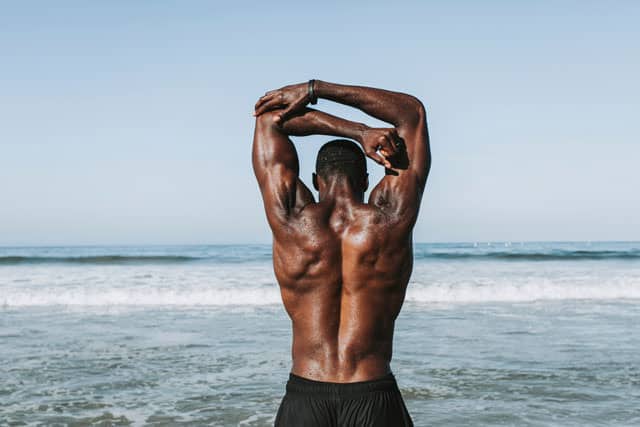
Tell us about breakfast, what are the best healthy tips to start the day?
Not everyone is a breakfast person. I LOVE BREAKFAST! If I had a big dinner I do not feel like eating in the morning, I wait until I am hungry. For humans it is not natural to eat 24/7, therefore it is totally ok to skip breakfast. Just make sure you get all your needed nutrients throughout the rest of the day. Anyways, I love waking up hungry and having a big breakfast!
- I think it’s clear, but don’t have food loaded with sugar in the morning (e.g.choco pops) They are low in nutrients, high in sugar and will increase your blood sugar levels for a short term. Your blood sugar level will decrease very quickly after and will make you crave junk food later in the day.
- Freshly pressed fruit juices or smoothies have the reputation to be THE healthiest thing in the world, however, containing high amounts of fruit sugar and no fiber. Let’s say you buy a green smoothie containing apple, orange, kale, celery and mint. So easy to drink right? But would you eat 3 apples and 1 orange just like that? The amount of sugar is the same as in the smoothie minus the fiber. But fiber is what keeps us full, aids digestion and prevents certain cancers like colon cancer.
- Try to switch it up every now and then and don’t fall into a boring routine.
I find having a high protein breakfast and complex carbs keep me full for longer and give me sufficient energy till my next meal.
- Omelette with vegetables, whole grain bread, smoked salmon
- Oatmeal, chia seeds, Greek yogurt (LINK)
- Muesli (unsweetened) + fruit + yogurt
- Wholegrain bread + cottage cheese + lean meat or fish (turkey, chicken, smoked salmon)
Tell us about dinner, what are the best healthy tips for dinner?
Again, this is a very individual thing. If you haven’t eaten enough during the day you will need a big dinner, if you had a big breakfast and lunch go lighter on dinner. Some people can sleep better when the last meal was a couple hours before they go to bed, some people need full bellies. Whatever works for you.
Generally speaking, if you watch your weight I would go lighter for dinner. Combining fat and carbs will not benefit your weight loss, meaning mac’n’cheese, pizza, pasta + creamy sauce etc. is rather contra productive since you are not physically active (normally – maybe doing some bed gymnastics ;-)) during bed time, our body stores carbs in your muscles (glycogen) and fat in place you don’t want. Therefore, I’d recommend to consume vegetables, whole grains and protein or fat/protein combinations for dinner if you had not been very active during the day. That way our body falls into some kind of a “fasting” state while we sleep and uses the existing fat depots for body maintenance functions.
Dinner examples would be
-lean meat + veggies (e.g. salad+chicken, quinoa+steamed vegetables+tofu, chilli con carne, omelette, rice cakes + turkey/tuna/cottage cheese, veggie/beed stir fry…)
If you went for a run or did a workout just before dinner, you should fill your glycogen storages (muscles) with sufficient energy in form of carbs + protein.
- Rice+meat, Beans+legumes (chickpea salad, bean stew, lentil soup) + tofu or/and rice, bread+turkey/cottage cheese+ topfen (for my Austrian readers), eggs+potatoes, steak+beans
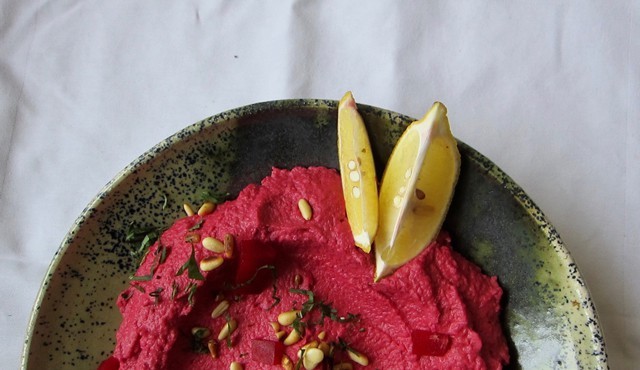
Any favourite recipe you want to share with us?
My beetroot hummus. It’s my favourite snack together with a bunch of cut up veggies and provides you with carbs, good fats, protein and fiber, as well as vitamins and minerals. Adding beetroots to your hummus increases the anti-oxidant and anti-inflammatory potential and aids athletic performance.
INGREDIENTS:
250g dried chickpeas, soaked overnight
3 heaping tsp tahini paste
2 cooked and peeled medium sized beetroot
2 gloves of garlic
250 ml water
1/4 Tsp ground cumin
1 Tsp olive oil
1 Tsp pine nuts roasted
1 Tsp fresh mint leaves, chopped pinch of smoked paprika powder
salt, pepper
PREPARATION:
1- cook chickpeas in boiling water for 45-60min. or until soft
2- rinse and pour into a high-speed blender, blend until smooth
3- add cumin, garlic, salt, pepper and tahini and blend
4- add beetroot
5- add water and olive oil and blend again until smooth
